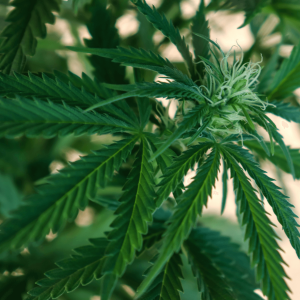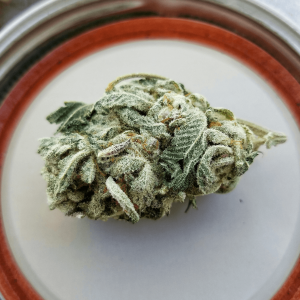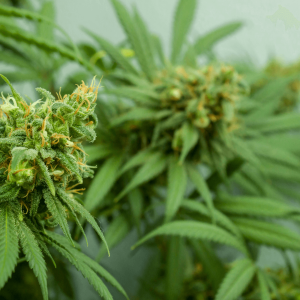With more stoners into the green scene heading to North Carolina, everyone’s buzzing about, “Is THCa legal in North Carolina?”
Now, the ongoing talk about legalizing cannabis in the U.S. has sparked debates, with laws differing widely across states. Within this legal maze, there’s a rising curiosity about THCa, a non-psychoactive form of THC.
While THC is known for its mind-altering effects, THCa is garnering attention for its potential therapeutic benefits without the high (in its raw form, of course).
In this blog, we’ll sift through the complexities of THCa’s legal status in North Carolina, break down the nuances of its classification, and explore how the state’s laws compare with the evolving national stance on cannabis and its derivatives. Let’s get started!
Understanding THCa: A Closer Look at the Compound
THCa, short for Tetrahydrocannabinolic acid, is a cannabinoid found naturally in the raw cannabis plant. It’s a precursor to the more commonly known THC (tetrahydrocannabinol), which is the compound responsible for the psychoactive effects associated with our favorite plant.
The properties of THCa are interesting because, unlike THC, it doesn’t produce a high when consumed in its raw form. It requires decarboxylation—a process of heating—to transform into the psychoactive THC.
The Difference Between THCa and THC
The main differences between THCa and THC lies in their chemical structure and how they impact the consumer.
THCa is non-psychoactive because it doesn’t directly stimulate the CB1 receptors in the brain. This is a stark contrast to THC, which, after heating, gains the ability to bind with these receptors and produce psychoactive effects.
The Effects of THCa on the Human Body
Recent research suggests that THCa may have its own therapeutic benefits, such as:
- Anti-inflammatory properties
- Neuroprotective effects
Unlike THC, raw THCa flower allows patients to tap into the potential benefits of cannabis without intoxication.

A Brief History of Cannabis Laws in North Carolina
The cannabis laws in North Carolina have been a mix of changing rules and mindsets. Historically, the state has tended to take conservative views on drug laws, sticking to firm bans on marijuana use.
However, recent years have seen a subtle shift in perception and law. North Carolina passed a limited medical cannabis law in 2014, allowing the use of CBD oil for patients with intractable epilepsy. This step was a pretty big deal in embracing the medical uses of cannabis, even though it was taken cautiously.
With the buzz around cannabis legalization heating up nationwide, North Carolina is signaling a shift. More voices are speaking up and pushing for easier access to cannabis and its derivatives for therapeutic use through new legislative ideas.
Current North Carolina THCa Laws
As of now, North Carolina’s legislation does not specifically address THCa, which remains in a legal gray area.
Unlike its decarboxylated counterpart THC, THCa is not explicitly listed as a controlled substance. This little detail has caused some confusion about whether it’s okay to have or sell THCa products in North Carolina.
In contrast, the state’s approach to CBD—a cannabinoid recognized for its medicinal properties—is clearer, with the sale and use of hemp-derived CBD products containing less than 0.3% THC being legal.
The regulation for other cannabinoids like CBG and CBN aligns more with that of CBD, allowing their availability within legal limits.
This role shows a bit of a mixed bag in how cannabinoids are regulated. Compounds like THCa, which are akin to THC, are in a gray area legally, while some others have smoother sailing with the law.

Navigating THCa Compliance: Responsibilities and Penalties
For consumers and businesses in North Carolina, navigating the complexities of THCa legality under North Carolina law requires careful attention to avoid legal repercussions.
Consumers are responsible for ensuring that any THCa-containing product they purchase falls within the state’s legal parameters. In other words, it must originate from legal hemp and not cannabis plants, and the total THC (post-decarboxylation) must not exceed 0.3% by dry weight according to THCa possession limits.
On the business side, retailers and manufacturers dealing with THCa products must meticulously follow state guidelines, which include rigorous testing to confirm THC levels, proper labeling, and sourcing from licensed hemp-derived THCa cultivators.
As the laws evolve, businesses must stay informed and compliant with the latest regulations to avoid penalties, which can range from hefty fines to criminal charges.
With the legal landscape for cannabis and its derivatives continually shifting, due diligence becomes a crucial practice for both consumers and businesses looking to partake in THCa products legally.
Medical Perspective on THCa
The research on THCa’s medicinal potential is still in the early stages, but initial studies and expert opinions suggest a bright future for this cannabinoid.
THCa is being praised for its possible anti-inflammatory and brain-protecting properties, which could help patients with conditions like arthritis, multiple sclerosis, and neurodegenerative diseases. Ongoing studies aim to fully grasp THCa’s medicinal abilities and how it works in the body.
In North Carolina, healthcare professionals are cautiously optimistic about these findings. While official support depends on regulatory advancements and stronger clinical proof, the medical field is excited about THCa’s prospects, especially given the state’s strict cannabis regulations.
Hopefully, this scientific exploration of THCa will lead to new treatments and change attitudes towards cannabis and its products in legal and healthcare settings.
Conclusion and Future Outlook on THCa in North Carolina
In short, THCa’s role in North Carolina’s cannabis scene shows how tricky cannabinoid rules can be.
Right now, THCa is in a legal gray zone, not exactly banned but under close watch because it’s related to THC. If stoners in North Carolina are thinking about trying THCa, they should check where it’s from and its THC levels after decarboxylation to stay legal.
Looking ahead, with cannabis laws changing across the U.S., North Carolina might see some big shifts in its rules, especially as more studies prove the benefits of THCa and other cannabinoids.

Frequently Asked Questions
1. Is THCa legal to grow in North Carolina?
In North Carolina, the legality of growing THCa depends on its source.
If THCa is derived from hemp that is grown by a licensed cultivator and contains less than 0.3% THC on a dry weight basis post-decarboxylation, it is legal.
However, growing marijuana which may contain higher levels of THCa and THC is currently illegal in the state.
2. Is THCa federally legal?
THCa and federal law are a bit complex. Under the 2018 Farm Bill, hemp and hemp-derived cannabinoids containing less than 0.3% THC are legal.
Since THCa can convert to THC, its legal status can be ambiguous, and it is not specifically addressed in federal legislation as of now.
3. Is THCa a controlled substance?
THCa is not specifically listed as a controlled substance under federal law when derived from legally grown hemp.
However, if derived from marijuana or if it leads to THC levels above 0.3% post-decarboxylation, it may be considered a controlled substance.
4. Do drug tests look for THCa?
Most standard drug tests are designed to detect THC, not THCa.
Given that THCa can convert to THC in the body, there is a possibility for a positive test result if the conversion has occurred and THC is present in detectable quantities.

 Rewards
Rewards





